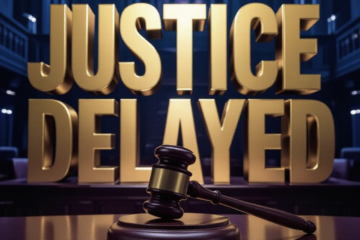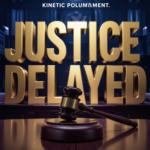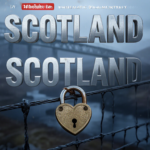Scotland’s local authorities are in the red again — this time by £647 million — as they scramble to balance budgets with a cocktail of cuts, tax hikes, and dipping into dwindling reserves.
It’s a harsh dose of financial reality, and despite Holyrood boosting its support, watchdogs say the money just isn’t enough. Services are already shrinking. Expectations? Still sky-high.
Taxpayers Squeezed Harder, Services Delivered Less
For the first time since the freeze was lifted, all 32 councils across Scotland raised council tax — and they didn’t hold back.
The average jump? 9.6%. But in Falkirk, that spike hit a whopping 15.6%. Residents in the area now face the largest council tax bill hike in the country, and many are wondering what they’re getting for their money.
One sentence: the answer, often, is less.
Councils have been cutting across the board — from bin collections and road repairs to community care and children’s services. Falkirk isn’t alone. Across Scotland:
-
Corporate services were slashed by £68 million.
-
Children’s services took a £58 million hit.
-
Residents saw charges for things like school meals, parking permits, and even burials go up.
That growing gap between cost and quality? It’s starting to show — badly.

A Growing Hole That’s Harder to Fill
Scotland’s Accounts Commission didn’t mince words. They warned that councils are patching up budgets in ways that can’t go on forever.
This year’s £647 million gap is £52 million worse than last year’s. And over the next two years? The Commission sees the cumulative shortfall climbing to £997 million. That’s nearly a billion pounds in red ink.
One-liner: Reserves are drying up. So are options.
Most councils depend heavily on revenue funding from the Scottish government — money that goes to pay for day-to-day services. That total will rise to £15.2 billion next year, a real-terms increase of 6%.
But higher wage bills, soaring inflation, and the sheer cost of doing everything now mean even that boost won’t be enough.
Struggling to Maintain Infrastructure on Borrowed Time
Scotland’s roads, schools, and public buildings aren’t immune either. Councils have £4.7 billion in planned capital investment for next year, and they’re going to have to borrow heavily to fund it.
Capital funding from Holyrood is up 16% — sounds good, until you realise it still doesn’t match what councils used to get just a few years ago.
Here’s a quick look at how capital funding has shifted:
| Council | Capital Funding Change (Real Terms) |
|---|---|
| East Lothian | Decreased |
| Stirling | Decreased |
| All Others | Increased or Stable |
In East Lothian and Stirling, the increase in revenue support was completely wiped out by the capital drop — leaving both councils worse off overall.
And that’s where the roadblocks begin, literally and figuratively.
The Cuts Are Coming for Everyone — Even Kids
One of the most concerning elements in this whole saga? The deepening impact on children’s services.
Schools are feeling the squeeze. Support services for vulnerable kids are being scaled back. Some councils are even reducing early years funding — despite record demand.
Short paragraph here: It’s children who are paying the price for a problem they didn’t create.
In places like Glasgow, where deprivation remains high, youth-focused programmes are being trimmed or axed altogether. From breakfast clubs to mental health support in schools, the list of casualties is growing.
It’s left many parents wondering: if we’re paying more, why are our kids getting less?
Councils Told to Change — Fast
The Accounts Commission issued a blunt message — this patchwork strategy won’t cut it.
Commission member Derek Yule told BBC Scotland News that councils needed to “deliver change at pace.” What that means, practically, is more reform. Working with community groups. Teaming up with other public bodies. And frankly, rethinking how they deliver services altogether.
One sentence again: Easier said than done.
Years of funding uncertainty have left many councils risk-averse and cautious. The political pressure to keep council tax low has long been at odds with the need to maintain service quality. That balancing act is now all but impossible.
Yet change, they insist, is the only way forward.
Political Blame Game in Full Swing
The opposition parties wasted no time pointing fingers at the SNP-led government.
Conservative finance spokesman Craig Hoy slammed the “black hole” in council budgets, saying taxpayers were “paying more and getting less.”
Labour’s Mark Griffin took a slightly more constructive tone, calling for consistent funding and a push to “modernise” services — though he too laid the blame at Holyrood’s door.
The Lib Dems went further, with Jamie Greene calling the funding gap a “titanic gulf” — accusing ministers of failing to provide even the basics.
In response, the Scottish government insisted they had upped support and would “continue to work in partnership” with local authorities. But for many in the sector, that partnership feels more like a bailout on life support.


















